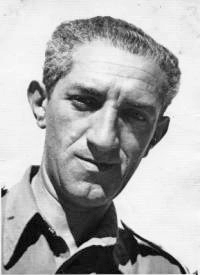Many songs that were written and composed in the Second Polish Republic are still popular worldwide. They are often performed and reinterpreted by various contemporary artists. Remembered as outstanding authors of texts and composers of popular music the interwar artists including Jerzy Petersburski, Henryk Wars, Władysław Szlengel and Zygmunt Białostocki were all of Jewish origin.
Petersburski was the author of the immortal hit “The Last Sunday”, “Tango Milonga”, and the world-famous hit “Donna Clara”. Another song composed by him, “Not me, not you” titled “Amour disait follie” was sung by Edith Piaf. Wars is the author of music for such beautiful songs as “Love will forgive you everything” or “I’m such a cold bastard”. He also wrote songs for many interwar Polish stars, such as Hanka Ordonówna, Eugeniusz Bodo, Adolf Dymsza and Zula Pogorzelska . He was also composing music for films. Wars was also a precursor of jazz in Poland, although he founded his first big band in the gloomy Soviet times in Lwow (1940).
The lyrics written by Szlengel were also unforgettable. He was fascinated by the cultural life of Warsaw, so he decided to stylize his songs into urban folklore, that is “andrusian” (mischievous, crafty) style. This is how: “Miss Andzia has a day off”, “Let’s go, Mr Zielonka”, “Girl from Podwale” were created.
Although they were pastiches, they turned out to be so convincing that they actually became part of the capital’s folklore recognized by many generations of the Warsaw’s inhabitants. These songs contain images of characters from the lower classes, the streets or the underworld.
All the authors recorded their songs at Syrena-Record – the first Polish and fourth in the world record company. The recording company was founded in 1904 by Juliusz Feigenbaum. In 1929, when the era of electronic recording began, it changed its name to Syrena-Elektro. For 35 years of market domination, it issued as many as 14 thousand songs.
The outbreak of the Second World War broke the promising careers of composers and songwriters. Petersburski and Wars joined General Anders’ Army in the USSR, the former returned to Poland in 1967, and the latter remained in exile in the USA. Szlengel and Białostocki died in the Warsaw ghetto.





